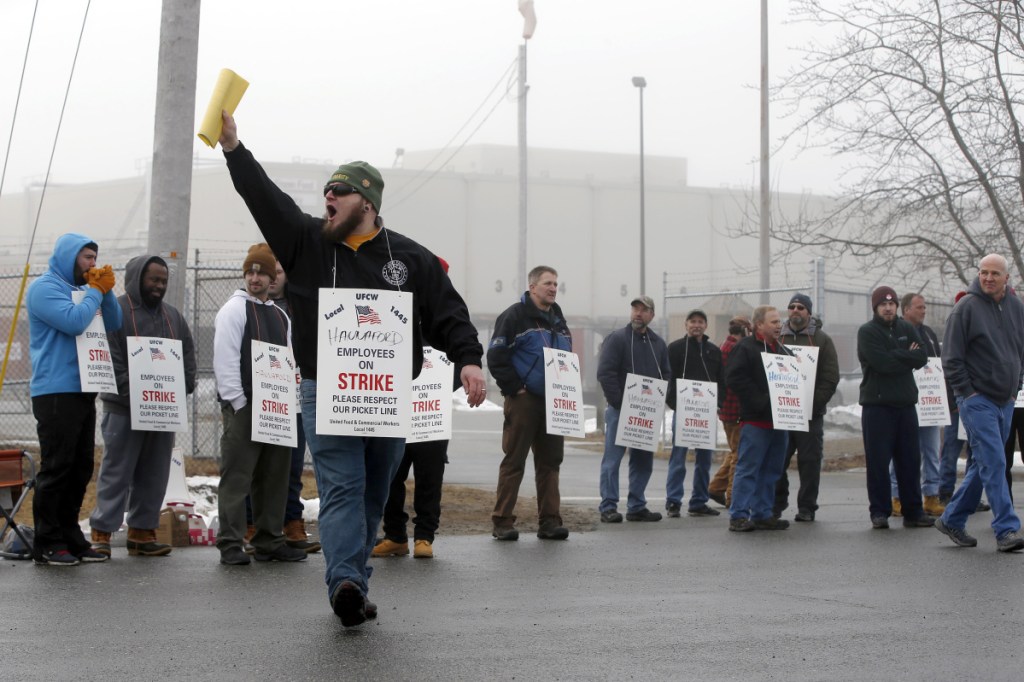Employment-based health insurance, now covering 56 percent of the nonelderly population, was introduced during World War II to help employers avoid wage controls. The issue of health care coverage in the recent contract negotiations between United Food and Commercial Workers Local 1445 and the company that operates the South Portland Hannaford distribution center provides an opportunity to examine that persisting model. When we do, several problems leap out.
• Employers are saddled with the unpredictable cost and hassle of insuring workers, while remaining vulnerable, as in the Hannaford case, to the threat of strikes. (A 2003 strike over health care benefits in Southern California cost three grocery chains over $2 billion.)
“In most labor negotiations during the past 30 years, more time and effort has probably been spent on the health care plans provided by labor agreements than on any other contract provisions, including pensions,” attorney Arthur Smith Jr. wrote in HR Magazine in 2013.
• Workers can’t see what they’re paying for health insurance within overall labor costs, have no guarantee that their plan or network will remain the same and risk losing coverage if they leave for any reason (the average worker has 11.9 jobs from age 18 to age 50, according to the Bureau of Labor Statistics). An employer’s retention advantage can be an employee’s job lock.
• When commercial insurers insure employees, they are cherry-picking the healthiest demographic, leaving the poorest, sickest and oldest pool to be funded by increased taxes and cost-shifting. And sometimes blamed (“state patients”).
The possibility of another strike at a Hannaford distribution center may not be as newsworthy as assault weapons or Russian meddling, but it should serve to remind us, when we get back to the issue of health care reform, that we should not let outdated conventions and entrenched interests keep us from rethinking the relevance of today’s workplace to today’s health care.
Daniel Bryant
Cape Elizabeth
Send questions/comments to the editors.



Success. Please wait for the page to reload. If the page does not reload within 5 seconds, please refresh the page.
Enter your email and password to access comments.
Hi, to comment on stories you must . This profile is in addition to your subscription and website login.
Already have a commenting profile? .
Invalid username/password.
Please check your email to confirm and complete your registration.
Only subscribers are eligible to post comments. Please subscribe or login first for digital access. Here’s why.
Use the form below to reset your password. When you've submitted your account email, we will send an email with a reset code.